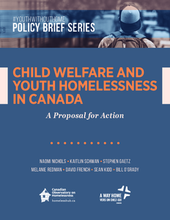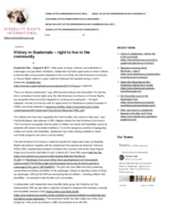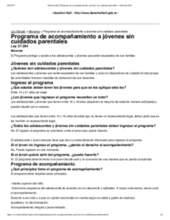Displaying 2431 - 2440 of 4424
A recent Canadian study on youth homelessness revealed that youth experiencing homelessness are 193 times more likely to report interactions with the child welfare system. This policy brief offers a snapshot of the situation for homeless youth with experience in care, an analysis of the structures and systems leaving these children behind, and recommendations for policy and practice.
Malaysian NGO OrphanCare reports that orphanages are reluctant to work with baby hatch centers, which seek to find permanent homes for abandoned babies, due to fear that they will not have enough children to maintain the institutions once they give them up for adoption.
The Inter-American Commission on Human Rights has called for urgent action to reintegrate children and psychiatric detainees who have been living in institutions into their communities.
This study consulted with young people in Australia about their perspectives on what makes residential care safe and how safety could be improved within residential care.
This article describes the findings of a four-year study with a cohort of children in out-of-home care in New South Wales and their experiences with the criminal justice system.
This blog post underlines the issues with orphanage volunteering and tourism, including its developmental and emotional impact on children and how it fuels the continuation of orphanages and diverts resources away from family preservation and reunification.
Este recurso describe Ley 27.364 de Argentina, Programa de acompañamiento a jóvenes sin cuidados parentales.
The Create Foundation is carrying out a survey to record the experiences and perspectives of young people who have lived in Australia's care system.
UNICEF India is seeking a consultation to support the Child Protection priority area of programming in the new CPD around strengthening family based care and alternative care especially non-institutional alternatives.
In this audio clip, Andrea Nave, Tara Winkler and Sinet Chan give evidence to the Australian Modern Slavery inquiry on orphanage tourism and trafficking of children into orphanages.




